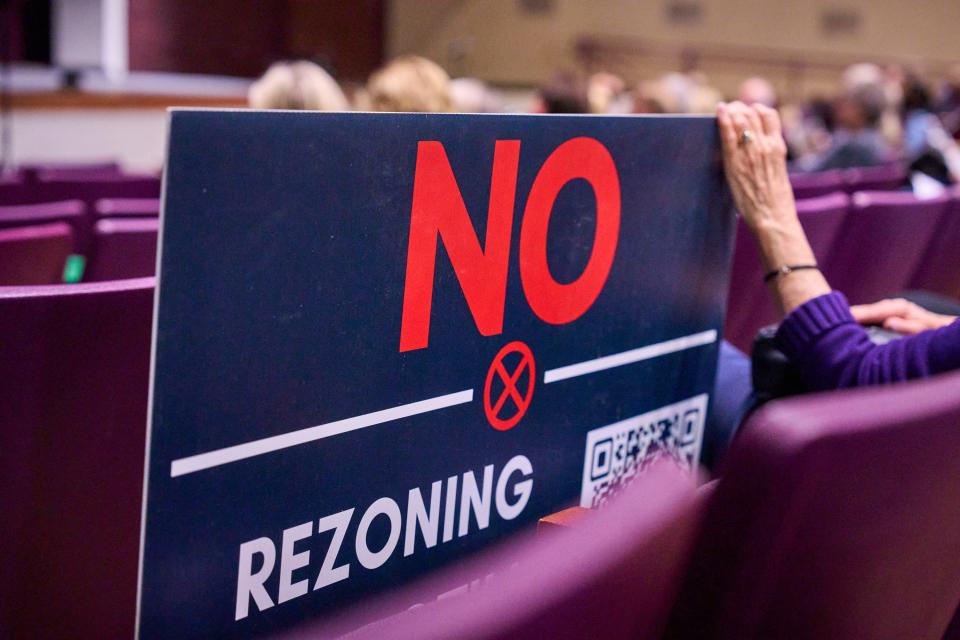Arizona lawmakers use 'affordable housing' as an excuse to build anything, anywhere
Anything-goes “solutions” from developers’ wish lists aren’t what Arizona needs to address the housing crisis in our state.
It’s one thing to adopt commonsense and tailored approaches to reduce the housing shortages. It’s quite another to try to ram through zoning deregulation measures that trample local control by imposing top-down edicts by the state.
Responding to the housing crisis, legislators from both parties have introduced dozens of bills on housing issues.
While we applaud our lawmakers for tackling what is a real issue, we are concerned by their consideration of proposals that would, to use an old saying, throw the baby out with the bath water.
Developers can't build whatever, wherever

Some of these proposals put existing neighborhoods at risk when lawmakers say the lack of affordable housing justifies letting developers build whatever they want, wherever they want.
Also, it’s unacceptable that pending legislation would muzzle residents who want to protect their property rights and quality of life. Remember, we have a constitutional right to petition the government for a redress of grievance.
So far, the approach in Arizona makes us wonder if lawmakers believe that our state is unique to a national need for affordably priced homeownership.
The truth is that the housing market is complex, and its pricing is dependent on mortgage rates, market pricing, labor shortages, supply costs and delays, buyer income, land speculation and availability.
We also wonder why, when the push for more housing in Arizona has resulted in 270,000 housing units in the pipeline, have developers not begun building the 106,000 units already approved by local governments?
Bills don't guarantee affordable housing
Instead, the focus of many legislators and industry lobbyists seems to be on one powerful bogeyman: zoning.
An array of bills would take steps big and small to deregulate zoning.
Let’s focus on two identical bills advancing in the Legislature.
The legislation (House Bill 2570 and Senate Bill 1112) is craftily named the “Arizona Starter Home Act.” Yet, as one legislator noted in a House committee hearing, there is nothing in the legislation that actually assures it would result in construction of starter homes.
The legislation would prohibit municipalities from adopting minimum lot sizes, minimum square footage, or minimum or maximum lot coverage for single family homes.
As was noted at the hearing, the legislation would allow construction to produce a “checkerboard” of properties ranging from “tiny homes” to “McMansions” on the same block.
Lawmakers have helpful ideas: To fix our housing crisis
It’s important to note there’d be no distinction between existing neighborhoods where families have put down roots — for years, decades and even generations — and new subdivisions starting from scratch.
And what if lawmakers also approve another pending bill (HB 2721) that would allow “fiveplexes” to be built on any single-family lot? How might that work in your neighborhood?
Cities are making progress. There's more to do
Planning is the core of stability for cities.
Zoning is intended to provide municipalities with guidelines for urban planning. Without those guidelines, there is no plan. Without a plan, there is a chaotic approach to residential development.
That could mean streets and water and sewer systems don’t meet actual needs and require costly modifications.
Municipalities are already making zoning reforms.
Phoenix, for example, is reducing some parking requirements so more apartments can be built. The city also now allows accessory dwelling units, or so-called backyard casitas, on single-family home lots.
Another practical thing that cities could do, if the Legislature changes state law to allow it, would be to limit the number of short-term rentals. A misguided state law now means many investor-owned homes are unavailable for purchase by residents and instead sit idle between rentals by vacationers.
Residential development has a generational impact on neighborhoods, municipalities and our state. If we focus only on the “now,” how are we preparing for the future?
Neal Haddad and Paul Davenport are members of the Neighborhood Coalition of Greater Phoenix. Reach them at NCGPHX@gmail.com.
This article originally appeared on Arizona Republic: Affordable housing bills wrongly demonize Arizona zoning rules

